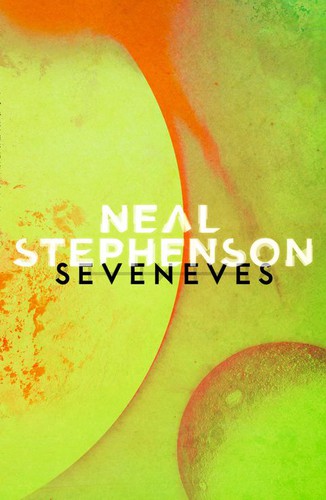Sami Sundell reviewed Seveneves by Neal Stephenson
Review of 'Seveneves' on 'Goodreads'
4 stars
Seveneves is a hard scifi novel that is plainly apocalyptic - and post-apocalyptic - and it's happy to admit so right from the start. The setting is breathtaking: by some cosmic accident, the Moon is split into seven parts, and after a while it becomes clear that this means the clock is ticking. Time of humanity on Earth is at and end, and there's a hard deadline for enacting plans to save the mankind.
There are three distinct parts in the novel: preparing for apocalypse, the apocalypse itself, and the final part of post-apocalyptic vision. The first two parts happen in near future, and Stephenson does a fine job in describing technology that is almost completely believable from the current standpoint. To make things easier - or harder, depending on whether you like it or not - the book dumps the reader with huge amounts of information about orbital mechanics, zero gravity, astronomy, gene technology, robotics... and chains.
Some nitpicking, though: the genetics of the story seem very simplistic, and manipulating the genome is described as a simple job - that simplicity is actually, in some ways, a basic tenet of the whole survival of the species.
The humankind's struggle is told from the point of view of a few persons, working mostly in the orbit. The speed at which everything happens is breathtaking, and it's hard to put the book down once you start reading it.
At some point towards the end of the second part of the book, the writer starts to distance the reader - and himself - from the main characters. There's more data dump, the point of view becomes neutral instead of focusing on single persons. At the end of the part we move back to personal view, but it's not enough to make the reader care about the characters.
The third, post-apocalyptic part of the book is enjoyable science fiction that presents several ideas that are plausible if not downright probable. It's practically another book - there's a plot that depends on the first parts of the book, but it probably could be read separately with minor modifications.
The biggest problem is that Stephenson leaves a lot of things open in the first two parts, and then gives us a separate third part where he tries to touch on all of those things. 900 pages is not enough for that, and in the end, I'm left wanting more.
Make no mistake: this is an excellent book. At the same time, though, it is one that screams for sequels, and the sequel could've started at least 300 pages before the end of Seveneves.

